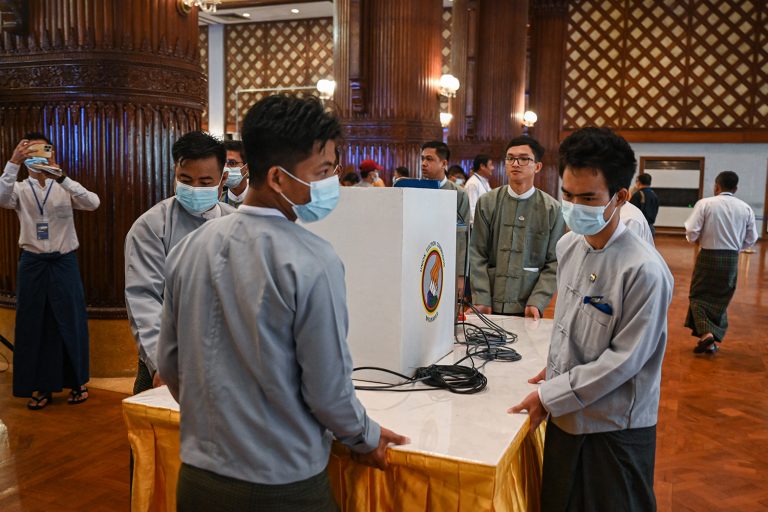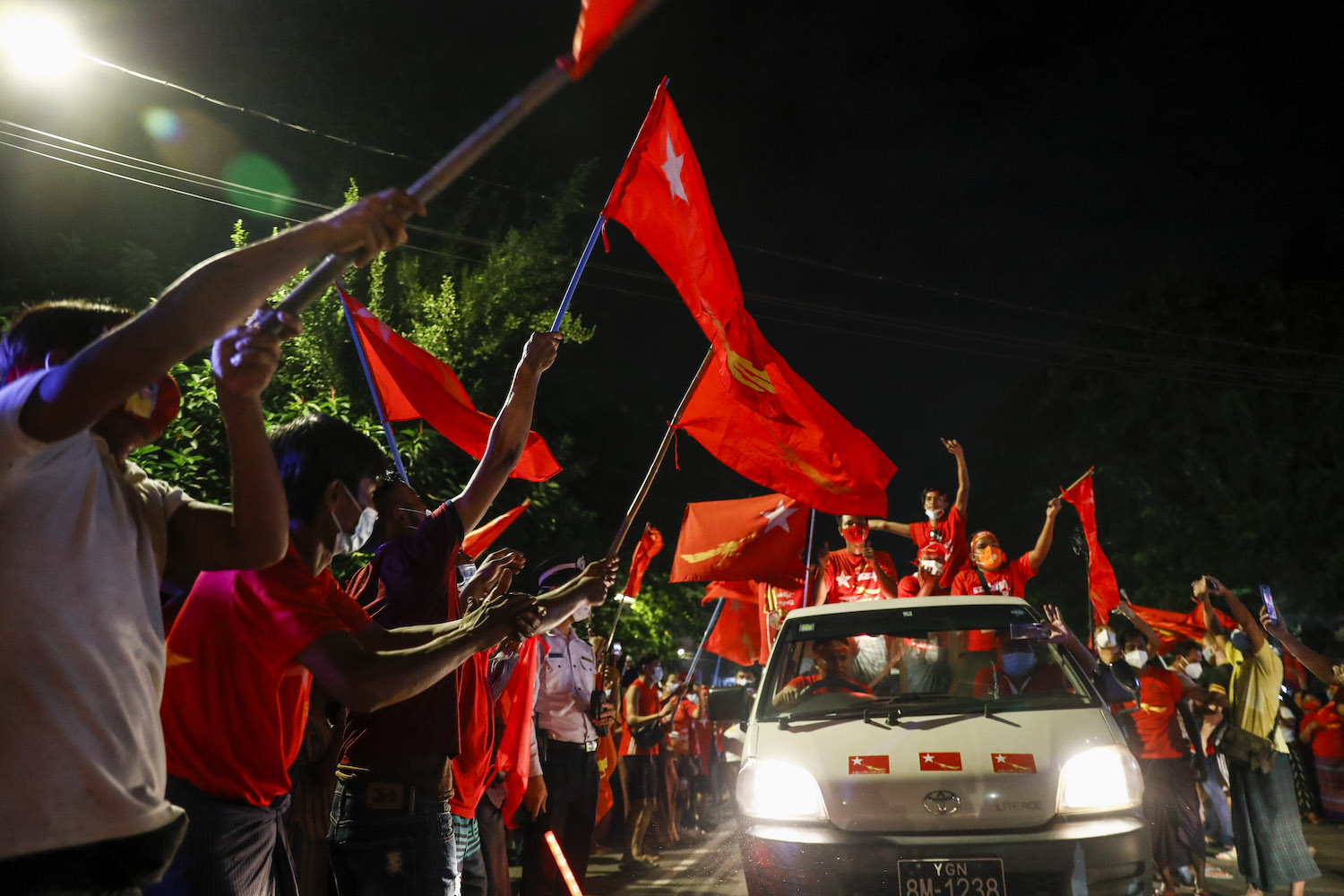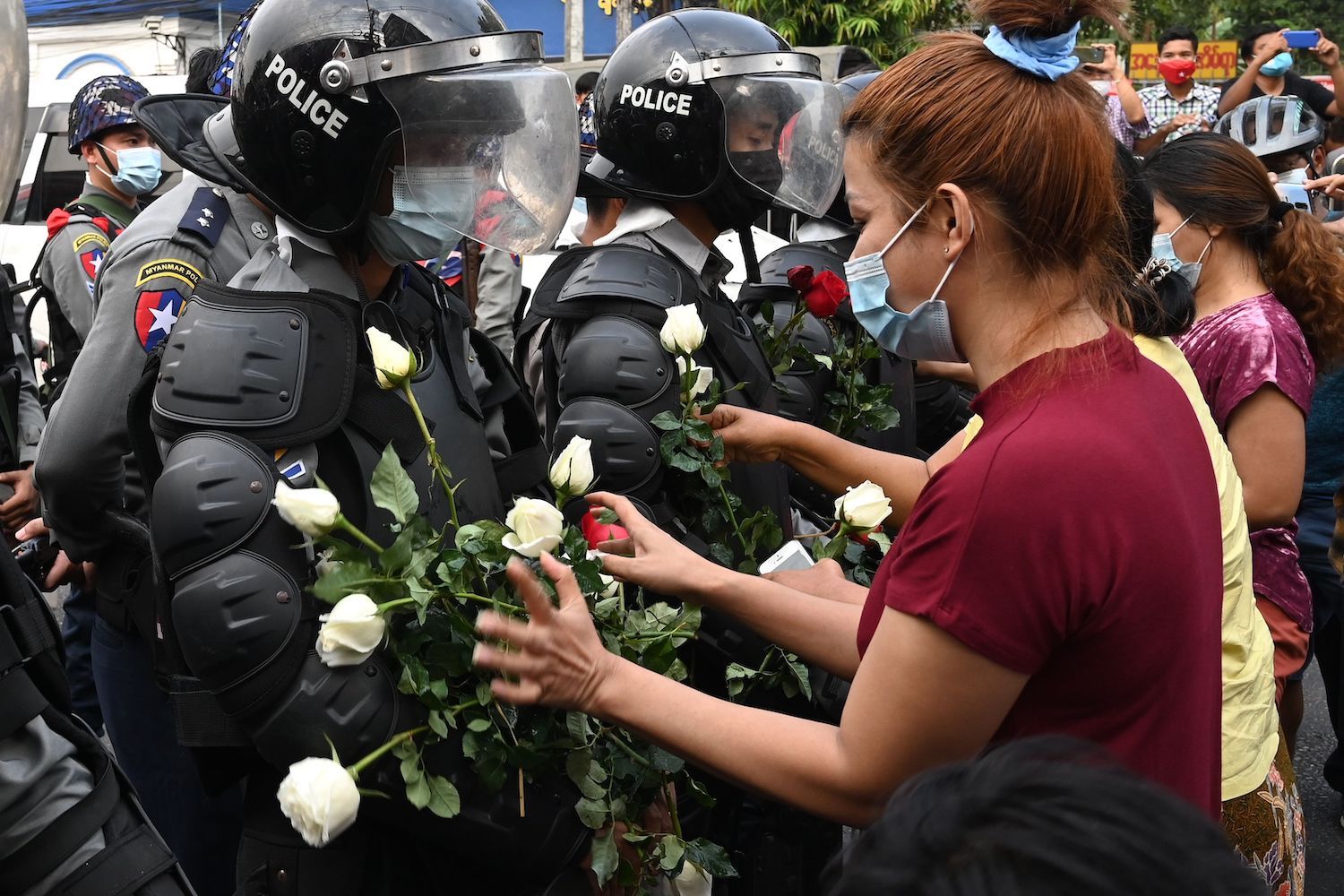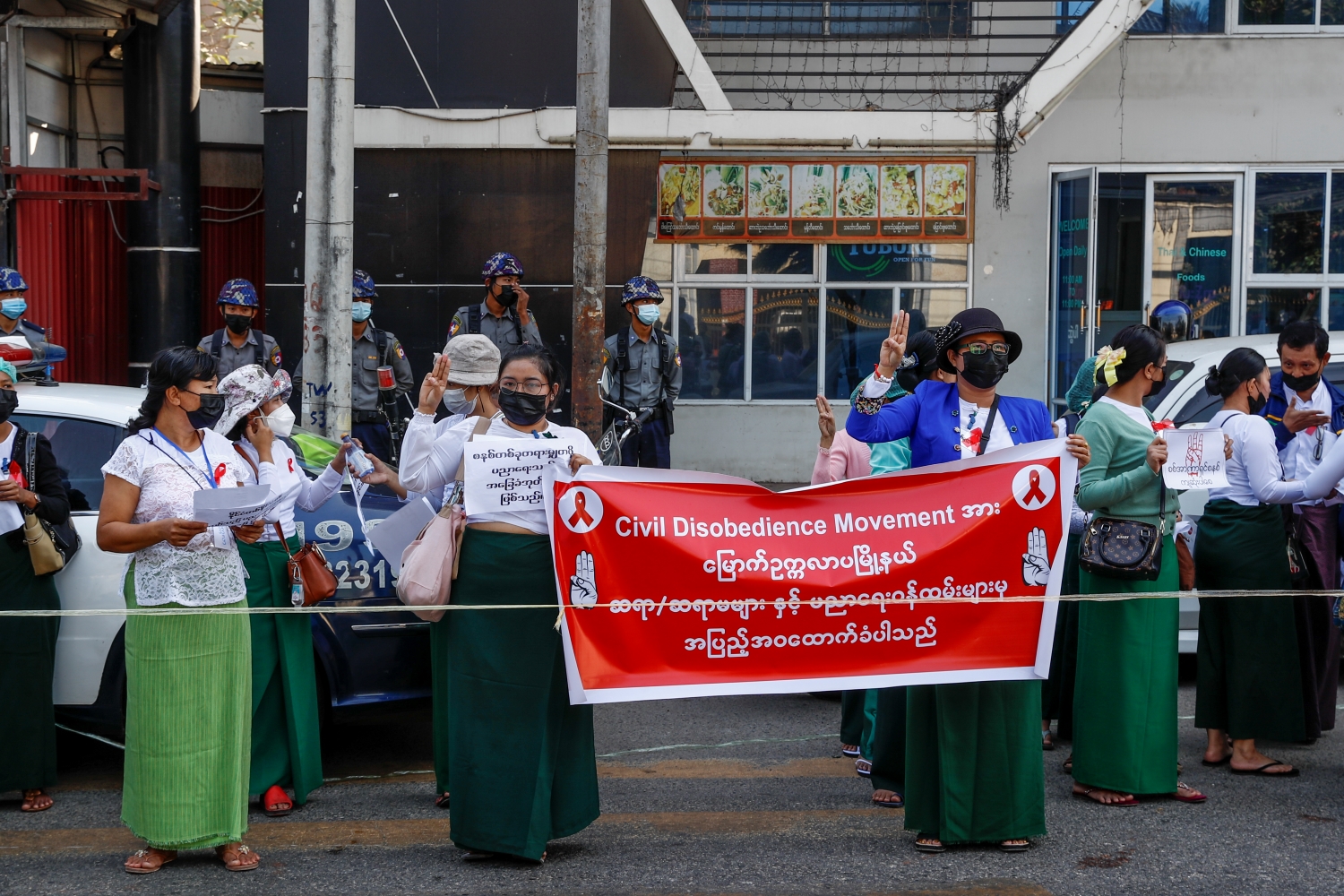The funeral of ruling party hardliner and strategist U Aung Thaung, who was implicated in the infamous Depayin incident, will take place in Yangon on July 27, it was reported last week.
YANGON — U Aung Thaung, 74, an industry minister in the former military government who was blacklisted by the United States last year, died in the intensive care ward of a Singapore hospital on July 23.
Sources close to his family said he died at 8.15 am. His remains were returned to Yangon from Singapore later the same day.
There was two minutes’ silence in the Union parliament on July 23 to mark his death, the ruling Union Solidarity and Development Party said on its website.
U Aung Thaung had been medically evacuated to Singapore aboard a chartered flight on July 9 after suffering a cerebral haemorrhage in Nay Pyi Taw the previous day.
The Pyithu Hluttaw MP for Taungtha Township in Mandalay Region was one of four senior members of the USDP who serve as senior consultants to the party and played a leading role in the creation of its predecessor, the Union Solidarity and Development Associaiton.
Support more independent journalism like this. Sign up to be a Frontier member.
U Aung Thaung, whose family is said to be among the wealthiest in Myanmar, was the military junta’s Minister of Industry (1) from 1997 to 2011.
He was known to be close to the junta’s supremo, the former Senior General Than Shwe.
Opposition activists have accused U Aung Thaung of playing a key role in planning a deadly attack on a convoy of members of the National League for Democracy at Depayin village in Magwe Region in 2003.
The attack came during a national tour by NLD leader Daw Aung San Suu Kyi, who was unhurt. Dozens of party members died in the incident.
U Aung Thaung was also accused of a role in instigating the sectarian violence that has left scores dead in Myanmar since 2012, an allegation he described as “nonsense” in a 2013 interview.
In 2014, U Aung Thaung was blacklisted by the United States. In a news release announcing the decision, the US Office of Foreign Assets Control accused him of “perpetuating violence, oppression and corruption” and of “intentionally undermining the positive political and economic transition in Burma”.
It was the first time since the change of government in 2011 that a senior Myanmar official was placed on the US Specially Designated Nationals list, as the blacklist is known.






